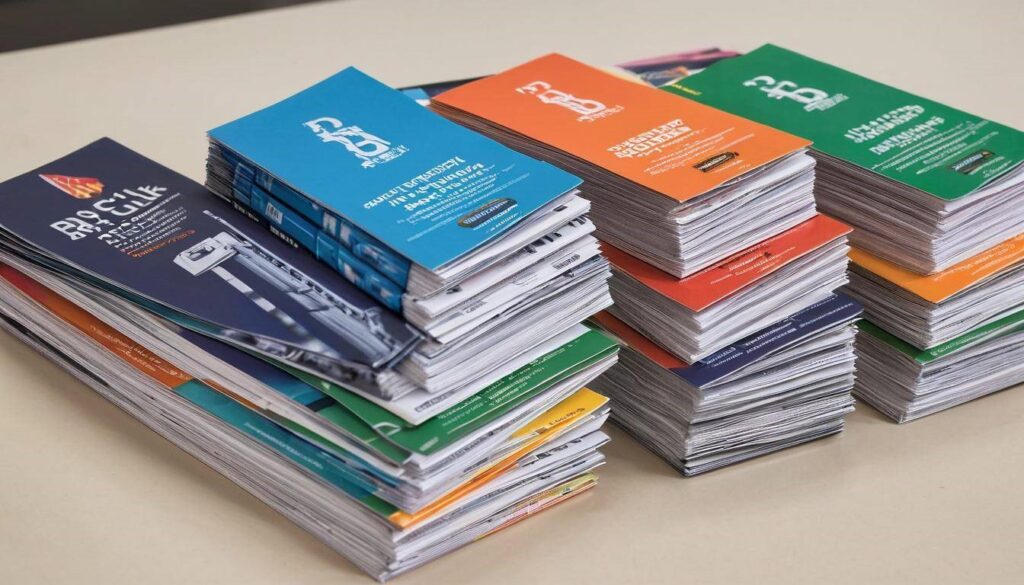Shipping a car can feel like navigating through a maze of unknowns – from worrying about hidden fees to ensuring your vehicle arrives without a scratch. For many, it’s a balance between saving money and not compromising on safety. But here’s the good news: with proper research and smart choices, you can indeed have both affordability and reliability.
Think about it this way: Just like sifting through mountains of reviews before choosing the perfect hiking boots or cycling gear, investing time in comparing car shipping companies is vital. Surprisingly, some premium services might offer deals during off-peak seasons, giving you top-tier protection without breaking the bank. First things first, let’s explore how to pinpoint trustworthy car shipping companies.
To secure the best interstate auto shipping rates, consider factors such as the distance of transport, type of shipping (open or enclosed), and research reputable companies or bidding services like uShip. It’s also important to avoid brokers and ensure that the company you choose will be directly handling the transportation of your vehicle.
Researching Car Shipping Companies
When it comes to transporting your vehicle, extensive research is essential for ensuring a smooth and reliable experience. Start by identifying well-established companies with a proven track record in the industry. Established companies often have the expertise and experience to handle your car shipping needs efficiently and professionally.
A good starting point in your research is to visit the company’s website. This will provide valuable insight into their services, coverage areas, and any special features they offer. Look for information regarding their history, including how long they’ve been in business and any notable accomplishments or awards they’ve received.
After exploring their website, it’s essential to check for customer reviews and ratings on trustworthy platforms such as the Better Business Bureau (BBB). A reputable company will have positive reviews from satisfied customers. In addition, the BBB can also provide ratings for each company along with details on any unresolved complaints or issues.
Noteworthy companies like Reliable Carriers, Montway Auto Transport, and AmeriFreight are often recommended due to their strong reputations and track records of successful car shipments. These companies have often been lauded for their professionalism, reliability, and overall customer satisfaction.
By conducting thorough research on potential car shipping companies, you can gain confidence in their ability to handle your vehicle with care while also securing the most competitive rates for their services. This level of investigation ensures that you’ll be working with reputable and trustworthy professionals whom you can rely on to transport your vehicle safely.
The next step after researching is to gather quotes from multiple companies and thoroughly compare them to determine the best fit for your specific needs.
Comparing Shipping Options
When it comes to shipping your precious vehicle, it’s essential to weigh various options to find the one that suits your needs and budget. Let’s start by looking at two fundamental aspects of car shipping: the mode of transport and the delivery method.
Open vs. Enclosed Transport
One of the first decisions you’ll need to make is whether to opt for open or enclosed transport. Open transport is generally more affordable, with costs ranging between $800 – $1,200 for cross-country trips. This type of shipping exposes your vehicle to the elements but is a great choice for standard vehicles. On the other hand, enclosed transport provides more protection and can range from $1,200 – $1,800. This method is ideal for classic cars, luxury vehicles, or any other automobiles that require extra care.
For instance, if you’re moving a daily driver or a common vehicle model, open transport might be a cost-effective solution. However, if your vehicle holds significant sentimental or monetary value or perhaps needs meticulous protection due to its condition, enclosed transport might be worth the higher expense.
Door-to-Door vs. Terminal-to-Terminal
Now let’s consider how you want your vehicle picked up and dropped off: Door-to-door service provides the convenience of having your vehicle picked up and delivered right at your specified locations. While this option is undoubtedly convenient, it often comes with a higher price tag compared to terminal-to-terminal shipping. You can expect to pay approximately $200 more for door-to-door service, but it eliminates much of the hassle associated with drop-off and pick-up logistics.
On the other hand, terminal-to-terminal shipping involves dropping off and picking up your vehicle at designated terminals within a fixed schedule, resulting in potential cost savings due to its less personalized nature compared to door-to-door service. It’s essential to weigh these considerations against each other and determine which option aligns best with your specific situation.
By carefully considering these options, you are well on your way to making an informed decision about the most suitable method for shipping your vehicle. Taking into account not only the cost but also factors such as convenience and level of protection will ensure that you make the right choice for your circumstances.
In exploring the nuances of shipping methods and its impact on both cost and convenience, it becomes clear that requesting multiple quotes is an integral step towards making an informed decision while ensuring superior service reliability.
Requesting Multiple Quotes
When it comes to shipping your car, securing competitive rates is essential. The first step is to gather multiple quotes to ensure the best deal. Platforms like uShip offer a bidding service, where carriers compete for your shipping request, potentially driving down your costs. This can be a great way to explore different pricing and service options.
Aside from online platforms, directly contacting shipping companies via phone or through their websites is another valuable approach. By doing so, you can obtain detailed quotes that allow you to compare various factors such as insurance coverage, delivery time, and any additional fees. It’s important to thoroughly research and choose reputable shippers with positive reviews.
By obtaining quotes directly from the companies, you’ll have a chance to ask questions and clarify any doubts you may have about the shipping process. This direct interaction can provide you with a better understanding of how the company operates and their level of customer service.
For instance, you might come across a company willing to offer additional insurance coverage at a competitive rate or one that provides expedited delivery options for your specific needs. These customizable services and features might not be evident in the initial online estimates.
In essence, by requesting multiple quotes, you’ll be able to gather a comprehensive understanding of the different services offered by various shipping companies, enabling you to make an informed decision that aligns with your budget and requirements.
Now that you’re equipped with these various quotes and insights into the services offered by different companies, it’s time to carry out a detailed comparison to pinpoint the best car shipping rates for your needs.
Reading Customer Reviews

When it comes to making decisions about car shipping, your fellow customers’ experiences can be an invaluable resource. Before you entrust a company with your vehicle, take the time to scour through customer reviews and ratings. Websites such as Transport Reviews and Google Reviews are treasure troves of first-hand experiences, shedding light on a company’s reliability, professionalism, and overall service quality.
As you sift through the multitude of reviews, pay particular attention to recurring themes and patterns in customer feedback. Look for consistent mentions of punctuality, clear communication, and the condition of vehicles upon delivery. Positive remarks in these areas can serve as strong indicators of a company’s commitment to excellence and customer satisfaction.
For instance, an overwhelming number of positive comments lauding a company’s timeliness and responsiveness is a positive sign that they prioritize meeting agreed-upon timelines and keeping clients informed throughout the shipping process.
Additionally, keep an eye out for any red flags, such as complaints about hidden fees or unexpected charges at the time of delivery.
A reputable car shipping company will maintain transparency regarding their pricing structure and ensure that customers are fully aware of all costs involved before finalizing the shipment.
Conversely, multiple negative reviews citing concealed fees or unanticipated expenses should raise concerns about the company’s integrity and upfront communication.
By carefully analyzing these customer reviews, you can gain valuable insights into a car shipping company’s track record and make an informed decision based on real experiences from past clients.
Entering the realm of car shipping can be filled with hidden costs and unexpected surprises. Let’s navigate through the maze of potential additional charges and ensure you have clarity every step of the way in our next section: Avoiding Hidden Charges.
Avoiding Hidden Charges

When it comes to shipping your car, the last thing you want is to be hit with unexpected and expensive hidden charges. It can turn even the best deal into a costly affair. The key here is clarity and thoroughness when reviewing the terms of the shipping agreement. Let’s break down some common hidden fees that you should watch out for to ensure you are well-informed before making any commitments.
Firstly, keep an eye out for expedited shipping surcharges. Sometimes, due to unforeseen circumstances or deadlines, you may need your car shipped faster than normal. However, expedited shipping can come with hefty additional charges that were not initially factored into the quote. Be sure to clarify the exact cost and decide whether the urgency outweighs the extra expenses.
Fuel surcharges are another sneaky addition to watch for when finalizing your car shipping agreement. Fuel prices fluctuate, and this can affect the overall cost of shipping your vehicle. Some shipping companies apply fuel surcharges as a way to offset these fluctuations, but it’s important to understand how this might impact the total cost and whether it aligns with your budget.
For owners of oversized vehicles such as trucks or SUVs, there might be additional charges that were not originally included in your quote. These vehicles typically require more space on a transport trailer and may exceed standard size limitations, resulting in extra costs. Understanding these potential overage charges beforehand allows you to plan accordingly and avoid any surprises once your vehicle is on its way.
Clarify all aspects of the quote, including insurance coverage, to avoid unexpected costs.
Think of reviewing the fine print in a car shipping agreement like reading the user manual for a new phone; skimming through could cause you to miss important details that impact how you use the device down the line. Similarly, overlooking hidden charges in a shipping agreement could lead to unexpected expenses and frustrations later on.
Anticipating these hidden costs and clarifying them from the outset will help you avoid any unwelcome surprises during the car shipping process. Remember, clear communication and thorough understanding of all terms and conditions will go a long way in ensuring a smooth and cost-effective experience when shipping your vehicle.
In this high-stakes game of ensuring transparency and avoiding surprise expenses, it’s crucial to continue our journey by delving into strategies for smart budgeting when it comes to car shipping.
Budgeting for Car Shipping
When it comes to getting your car shipped across the country or even internationally, it’s important to plan financially to avoid any unexpected costs. Let’s break down the key factors you need to consider when budgeting for car shipping.
Base Shipping Rate
The base shipping rate is one of the primary costs to consider when budgeting for car shipping. This rate typically falls within the range of $800 – $1,400, depending on the distance and the type of shipping you opt for. For example, open car shipping is generally less expensive than enclosed car shipping as open carriers can transport multiple cars at once, reducing the cost per vehicle.
It’s important to note that when shipping a car cross country, the distance plays a significant role in determining the cost. Typically, the cost variation based on distance ranges between $0.50 – $1.00 per mile. It’s essential to factor in this cost variation while budgeting for car shipping, especially if you’re moving your vehicle over a considerable distance.
Insurance
In addition to the base shipping rate, you should also factor in insurance costs when budgeting for car shipping. Additional insurance for your vehicle during transit may cost approximately 1% of the car’s value. While many reputable car shipping companies provide insurance coverage, opting for additional insurance is recommended to ensure comprehensive protection for your vehicle throughout the shipping process.
When considering insurance costs, remember that the value of your vehicle will directly impact the insurance expense. It’s advisable to assess your vehicle’s value and factor in the corresponding insurance cost while creating your budget for car shipping.
Seasonal Factors
Seasonal variations play a crucial role in determining car shipping rates. During peak moving seasons such as summer, rates tend to be higher due to increased demand for car shipping services. On the other hand, winter rates may be lower; however, potential weather-related delays may influence the overall shipment timeline.
It’s important to consider seasonal factors when budgeting for car shipping, particularly if you have flexibility in choosing your shipment dates. While summer rates may be higher, planning well in advance and booking your shipment early can help mitigate potential cost increases during peak seasons.
By factoring in these key elements when budgeting for car shipping, you can effectively plan for the costs involved and make informed decisions throughout the shipping process. Properly assessing and understanding these expenses allows you to navigate through various options and choose the most suitable and cost-effective solution for transporting your vehicle.
Finding Reliable Carriers
When it comes to finding reliable carriers for shipping your vehicle, there are key factors to consider. The safety and security of your car are paramount, so choosing a carrier that is licensed and insured is essential. This provides added protection in case of any unexpected incidents during transit.
One way to verify the legitimacy and reliability of a car shipping carrier is by checking their status on the Federal Motor Carrier Safety Administration (FMCSA) website. Here, you can confirm their licensing and insurance details, as well as any safety records or compliance issues. It’s crucial to conduct thorough research and ensure that the carrier you choose meets all the necessary legal requirements to operate.
Another essential aspect is finding a carrier that offers GPS tracking for your vehicle. With GPS tracking, you can monitor your vehicle’s location in real-time, adding an extra layer of transparency and peace of mind during transit. This feature allows you to stay informed about the status of your shipment throughout its journey, providing reassurance that your vehicle is in good hands.
In addition to this, reliable carriers often provide regular updates on the progress of your shipment, giving you clear visibility into the transportation process. This level of communication can alleviate any concerns and ensure that you are well-informed every step of the way.
Moreover, it’s beneficial to look for carriers that have a proven track record of successfully transporting vehicles. Customer reviews and testimonials can be valuable sources of information when gauging the reliability and quality of service provided by a carrier. Look for feedback from previous customers on aspects such as timeliness, handling of vehicles, and overall customer satisfaction.
By thoroughly vetting potential carriers based on these criteria, you can select a reliable partner for shipping your car, ensuring a positive and stress-free shipping experience.
Ensuring the safety and reliability of your vehicle during shipping is a vital concern for any owner. By carefully considering these factors, you can make an informed decision that protects both your investment and peace of mind.
